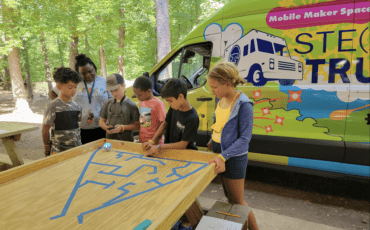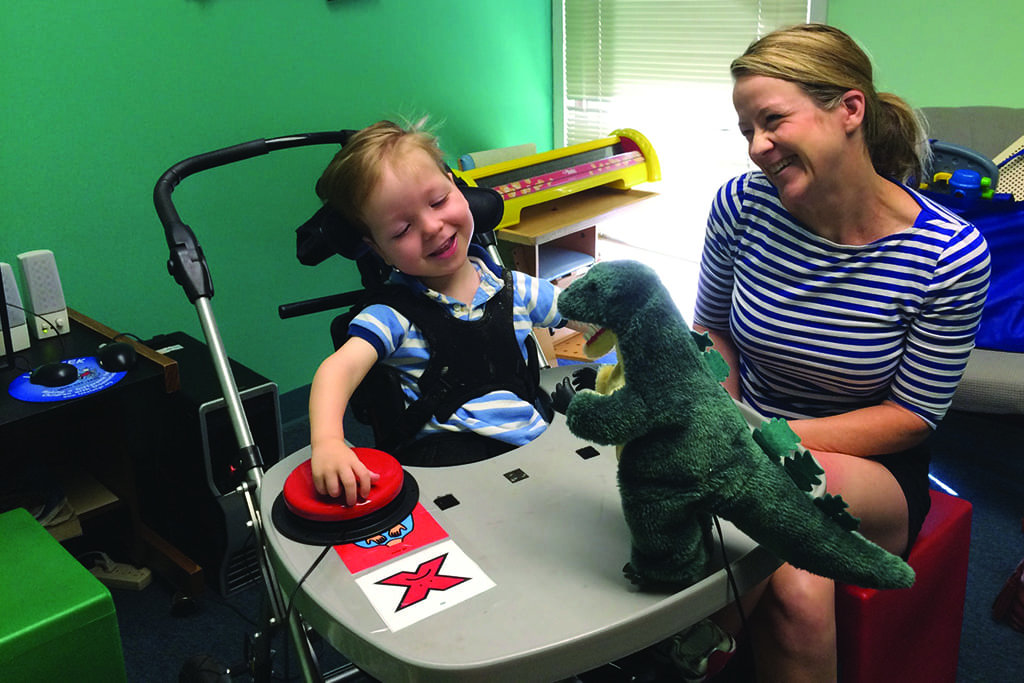Let’s Talk Tech: Online Safety
When adults think of online safety, they typically think of anti-virus software or creating strong passwords. For tweens and teens, however, social media and interactive gaming put their physical, mental and social health at risk. Since many parents didn’t grow up with the same access to technology that is now available, it’s important to be aware of the very real concerns certain technology usage presents for today’s kids.
This story is part of Atlanta Parent’s series, “Let’s Talk Tech.” Read our stories on Screen Time and Devices 101 for more helpful information on kids and technology.
Table of Contents
Physical Security & Health
In April of this year, the American Psychological Association (APA) released recommendations for the use of technology and social media for youth. One of these guidelines notes that usage should not interfere with sleep and physical activity. The APA notes that adolescents should get at least eight hours of sleep each night, have consistent bedtimes, and avoid technology use, specifically social media, within one hour of going to sleep. When youth do not get enough sleep, their brain development and emotional functions are adversely affected.
Another health concern associated with too much technology use is its interference with or reduction of physical activity and exercise, which, according to the APA, is essential for both physical and psychological health. Jody Baumstein, LCSW, a Child Advocacy Program Specialist in Behavioral and Mental Health at Children’s Healthcare of Atlanta, explains that online interactions can present a real safety threat. “Predators share feelings with children online that make children share information that can put them at risk physically,” she says.
“Social media is not for young kids,” says Ben Halpert, Founder of Savvy Cyber Kids, a non-profit based in Atlanta that focuses on online safety for children. He notes that parents are unknowingly exposing their kids to experiences their children are not mature enough to deal with. “Would a parent drop their 12-year-old off at the mall alone for four hours and tell them to have fun? Never. Those same threats parents worry about in the physical world are on social media. Child sextortion, rape and kidnapping where social media is the source of contact runs rampant in today’s society and too many parents are unaware of how massive the problem is.”
When kids are on devices, it is important they understand the risks and dangers of interacting with others. If parents feel their children are not mature enough to have conversations about online safety and the house rules of technology use, they should not be engaging with that device or platform. Halpert advises parents to be aware of the apps their kids are using and regularly check their accounts and devices. “Remember, the device is not your child’s property, and it is a privilege — not a right — to have access to that technology,” he says.
Mental & Emotional Health
In January, U.S. Surgeon General Dr. Vivek Murthy issued a statement saying 13 is too young for kids and teens to engage in social media. “Early adolescence is when kids are still developing their identity, their sense of self. It’s important for us to be thoughtful about what’s going into their own self-worth and their own relationships, and the skewed and often distorted environment of social media often does a disservice to many of those children.”
Baumstein echoes the surgeon general, adding that “kids are being exposed to content that is confusing at best and harmful at most. Whether through targeted ads on apps or social media, kids see a lot of inappropriate content that they don’t understand.”
Digital ads are designed to keep kids on devices longer, interrupting their play or feed; these ads often focus on body image or material things that give kids a distorted sense of reality. “They make them think, I wish I had that, or I want to look like that,” says Baumstein. “These comparisons to other people can create long-term issues such as disordered eating or never feeling like they are ‘enough’.”
At some point in their development all children are using technology. Parents must create an environment which breeds a feeling of security with online interactions, including ground rules and a listening ear. “We need kids to feel safe to come to an adult and ask questions, share feelings, say that’s something is scary or confusing,” explains Baumstein. “When they come to us, don’t judge. A parent’s goal should be to keep the dialogue going.” She also recommends staying calm; even if the question a child poses is shocking, have a small facial or physical reaction. Ask open-ended questions, validate their concerns, express curiosity to give kids confidence to continue sharing. “It can be hard, but listen more than you talk,” Baumstein says.
Social Cues & Cyberbullying
Social skills are an integral part of child development — knowing how to problem solve, read people’s facial expressions and take cues for how to respond, looking people in the eyes when you speak. These life skills do not get used the same way online as they do in person.
Additionally, online interactions can give kids a false sense of connection and foster feelings of loneliness. “‘I get attention, but don’t have any real friends’ is something I hear a lot from tweens and teens I work with,” says Baumstein. “Social media can also be dangerous for tweens and teens because they lack impulse control,” says Katherine Martinko, author of the new book, “Childhood Unplugged: Practical Advice to Get Kids Off Screens and Find Balance.” Kids might share photos in a group text based on a dare or express feelings on social media that can backfire in real life the next day at school. “Plus, devices are addictive especially when it’s in a kid’s pocket and they can pull it out any time to engage in online life and not real life,” she says. “Yes, older kids may have the need to communicate with peers, but they don’t have to have the latest technology with apps and Wi-Fi.”
The constant pull to social media also poses cyberbullying concerns. According to stopbullying.gov, cyberbullying includes sending, posting or sharing negative, harmful, false or mean content about someone else. It can include sharing personal or private information about someone else causing embarrassment or humiliation. A 2022 study by the Pew Research Center found that nearly half of U.S. teens, ages 13 to 17, had experienced cyberbullying. Name calling and spreading rumors were the top behaviors reported and in most cases were related to physical appearance.
For parents, knowing how to handle a suspected case of cyberbullying can be tricky — whether your child is a victim or culprit. Baumstein recommends starting with an open stance and remaining calm. “Don’t assume you know what’s going on, let them take the lead in expressing their feelings and explaining the situation,” she says. “Use it as an opportunity to problem-solve in real time to teach your child coping skills.” Trust your instincts though and if there is an immediate safety concern, reach out to the authorities.
“Kids respond to stress in different ways,” notes Baumstein. “But, if all of a sudden, they have stopped talking to a certain person, or seem edgy and tearful, they might be experiencing cyberbullying.” While discovering your child is a cyberbully can be devastating and embarrassing, parents must investigate the root of the actions and stop them. In this way, social media can serve as a reminder to think about how each person’s actions affect others and to lead with kindness.
-Tali Benjamin
Six Safety Tips for Parenting in the Digital Age
- Parents need to make it clear that they own the devices and showing maturity in use allows their children to continue to use the devices.
- Parents need to make it clear that devices are not allowed in children’s bedrooms (a Kindle Paperwhite with parental controls enabled is an exception).
- Parents need to know every password for every device, account, game, app, etc. for their children.
- Parents need to understand every app, game, and “friend” their kids interact with on the device. There are no inherently safe apps or games.
- Parents have a legal responsibility to ensure their kids have safe experiences online. Let kids know there is no expectation of privacy on the devices they use.
- If a parent deems their child mature enough to have their own device, then the parent needs to start telling their kids to keep their clothes on whenever they use a device; and if anyone ever asked them to send pictures or videos of themselves without clothes on the answer is NO, not ever.
*Provided by Ben Halpert, founder of Atlanta-based nonprofit Savvy Cyber Kids.









